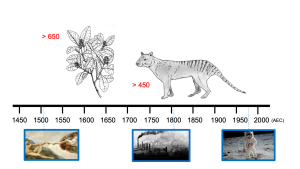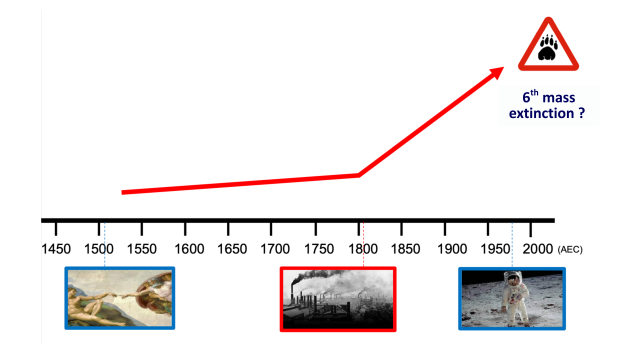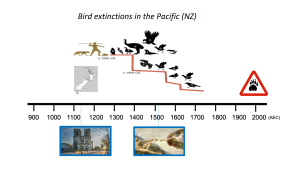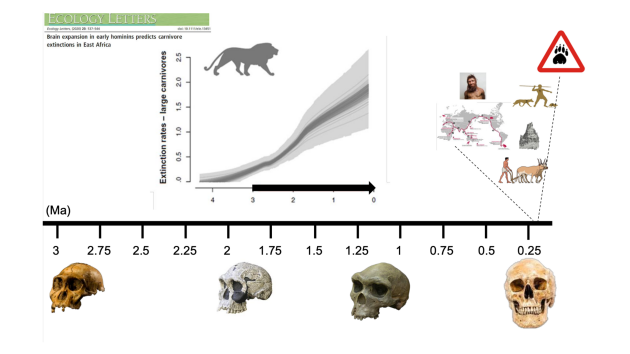Humans and biodiversity
The net impact of humanity has been to reduce biodiversity.
Here, we represent the last five centuries of our history, from Michelangelo to today.
Over these five centuries, biodiversity has declined by more than 600 plant species and 400 mammal species, although this number is likely higher, as these data represent species recorded as extinct.
However, the extinction rate has increased sharply over the last 200 years, corresponding to the beginning of the industrial revolution. The high extinction rate suggests that we have entered a period of mass extinction, the sixth.
The impact of humans on biodiversity began long before the last five centuries. As an example, we can observe the correlation between human expansion in the Pacific islands 1,000 years ago and the extinction of birds.
Another key moment when human activities affected biodiversity was the beginning of agriculture and the development of cities more than 5,000 years ago. Even before that, it is possible that the expansion of humans across the planet was associated with extinction events.
Recently, a scientific article established a link between hominid evolution and the disappearance of certain animal species. In other words, even before becoming human beings, our predecessors already had an impact on the planet’s biodiversity.



